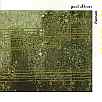So your band is making a CD. You practice the songs, pool your money and book some time at a recording studio. After you've finished recording and mixing, you realize that the CD needs to be mastered before it's sent to the replication plant. The studio says they can take care of it. Good enough. Or is it?
Just as recording and mixing need to be done by knowledgeable engineers with the right gear, mastering requires specialized skills and equipment. When done well it makes the difference between a good sounding recording and a professional CD.
Mastering is the act of assessing finished mixes, making necessary adjustments and creating a red book-compatible master disc that is delivered to a replication plant. While there are many cleanup duties involved in the process (edits, fades, etc.), the true purpose of mastering is to ensure that recorded music sounds its best in every listening environment, from boom box to Bose.
To accurately assess sound, mastering needs to be done with the proper tools, in a suitable environment, by a skilled engineer. Right off the bat this excludes every recording studio you've ever been in...no matter how expensive it is. Plain and simple, recording studios don't have the right equipment to master music. They may have a mastering program on their computer, but they are missing the other key components of the process. Unfortunately, by the time a recording is finished, most musicians (especially independent musicians, who usually do everything themselves) are so frazzled that they are willing to have their CD mastered at the recording studio because it means everything can be wrapped up and finalized right there. Big mistake. Take a look in the liner notes of any professional CD. Not a single one was mastered at the studio it was recorded in.
A true mastering studio offers several things a recording studio can't. Chief among these is a mastering engineer...a different animal entirely from a mixing engineer. After working on countless songs and albums, mastering engineers develop an acute sense of sonic and musical knowledge that is key to successful mastering. It's also a huge plus that the mastering engineer wasn't there when you recorded and mixed your album. Hearing your songs for the first time, he/she can offer truly objective advice.
Another crucial aspect is the proper equipment. Unlike a recording studio that may offer mastering -- or an all-in-one mastering program that musicians can purchase -- a professional mastering house has the right tools for the job, no matter what the sonic requirements. Specific compression, limiting, equalization, dither and editing capabilities are all part of this process. Also on the list are audiophile monitors, amplifiers and speaker cable. The bottom line is that in the mastering environment there can't be any breakdown in the signal chain. The music a band brings in must be heard for what it is: no more, no less. This is the only way to make accurate judgments about what to adjust.
After mastering is done, the finished product has a sound that listeners perceive as professional. With levels and balance properly adjusted songs have more impact, power and clarity. Albums achieve a sonic flow. What came in as a collection of tunes leaves as a work of art.
Paul Abbott has been playing and amplifying acoustic guitars since 1988. He has recorded several CDs (both solo and with bands), composes and performs his own works for solo acoustic guitar, and experiments in computer composition.
